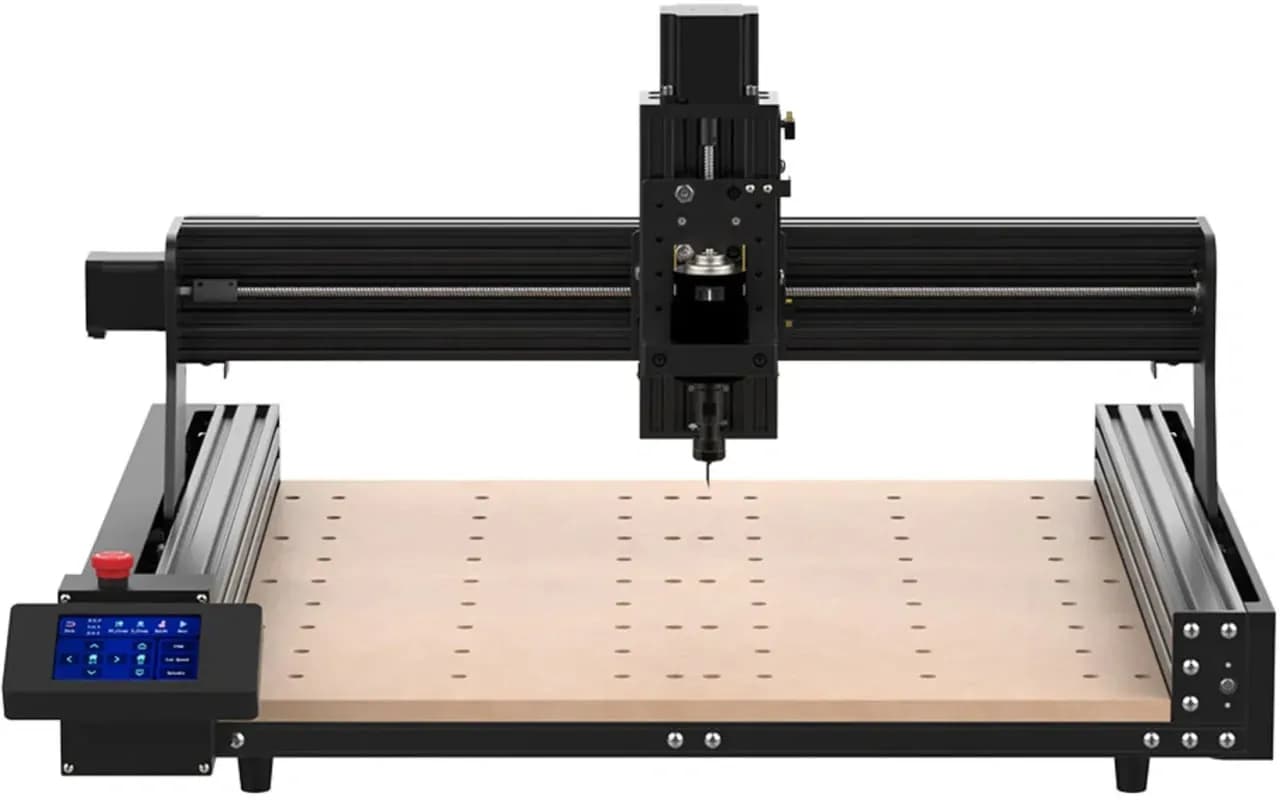Progress for 0 ad
Progress for 1 ad
Progress for 2 ad
Progress for 3 ad


Daniel Metaferiya
Addis Ababa, Ethiopia

A local enterprise spearheads solutions to industrial hurdles by assembling Computer Numerical Control (CNC) machines, —computer-controlled devices that automate the production of parts and products.
Primetech Engineering is carving out a lucrative niche, helping industries save significant foreign currency while reducing waste and power consumption. CNC machines are versatile tools used across various industries to cut materials such as metal, wood, plastic, and foam.
Eba Hunde, Primetech’s founding CEO, got insights into the difficulties of the industrial sector in Ethiopia while studying at Addis Ababa Science & Technology University. Upon watching several online videos of CNC machines, he recognized the potential benefits of customizing them to the local context.
“Local assembly cuts costs by as much as half,” Eba told Shega.
The prospective engineer managed to win financial awards from the university on two occasions for his explorations into CNC machines.
Primetech currently operates out of a 1000-square-meter workshop around the Ethiopian Broadcasting Corporation building in the Shegole area. The company imports computer processors and flamethrower nozzles from China and Europe, while most other parts are locally produced.
Due to their customizable nature, the company’s products have quickly found a market in construction, furniture, and metalworking workshops.
“People with technical backgrounds recognize the benefits immediately,” Eba says.
The manufacturing enterprise has sold over 20 machines to date. Prices vary based on the type of machine, with most costing over 500,000 birr.
A product lineup that includes lasers, gantry plasma, and fiber CNCs with standard and multiple-axis options has attracted several types of entrepreneurs. Ethiopia's manufacturing sector has a high reliance on imported inputs, with some industries having imported-input dependency ratios that are as high as 60%. Finding local alternatives for elements of the production process yields significant financial gains for entrepreneurs accustomed to Chinese and Turkish imports.
Geletu Basha, an industrial engineer who imported a CNC machine that now costs five million birr, was surprised to learn of Primtech’s offering.
“Figuring out how to locally customize the machines is quite impressive,” Geletu told Shega.
In Ethiopia, enterprises engaged in metal and woodwork businesses need CNCs to place designs on their products, which is nearly impossible with manual operations. The machines churn out the final product by relying solely on image inputs into the computer.
While most imported CNCs cost above a million birr, locally assembled alternatives are sold for a much lower price with a comparable level of efficiency.
If Ethiopia’s industrial and manufacturing sector manages to grow in the coming years, the demand for CNCs is set for a marked increase. Across highly industrialized countries, CNCs are used in all sorts of sectors ranging from aerospace, agriculture, and even hospitality.
👏
😂
❤️
😲
😠

Daniel Metaferiya
Daniel Metaferiya is a writer, journalist and radio host, with a keen interest in technology. He follows developments in Ethiopia's startup ecosystem closely and is passionate about profiling unique MSMEs.
Your Email Address Will Not Be Published. Required Fields Are Marked *